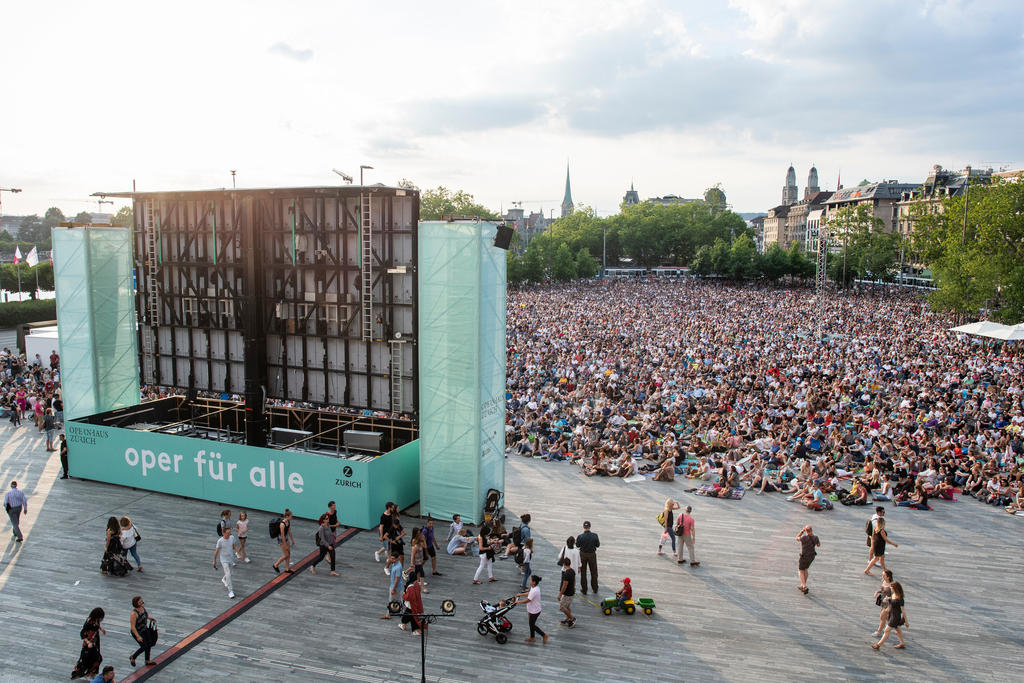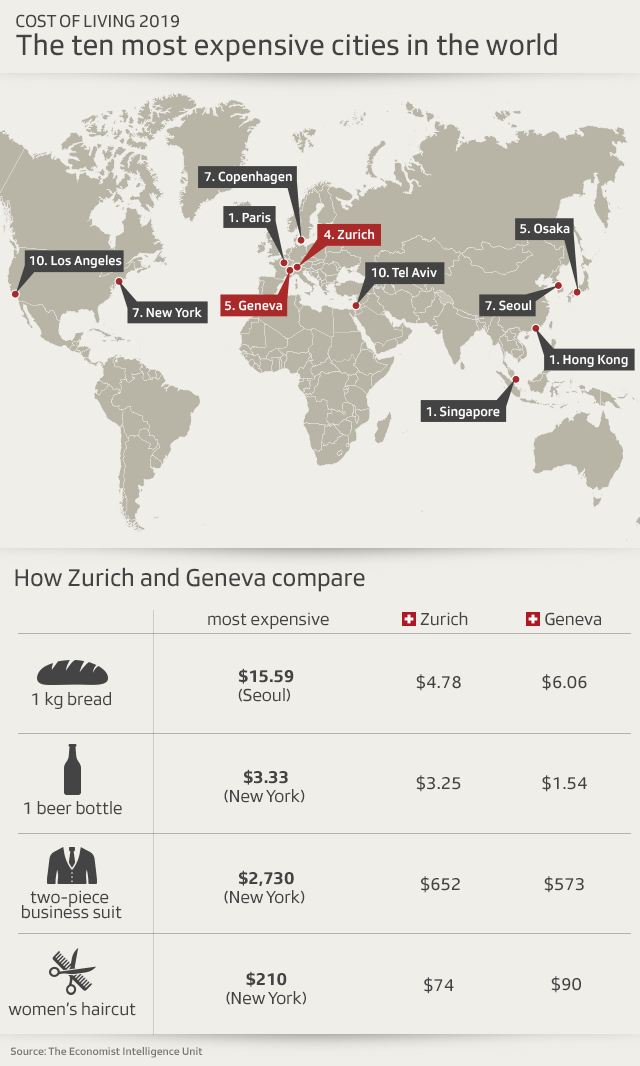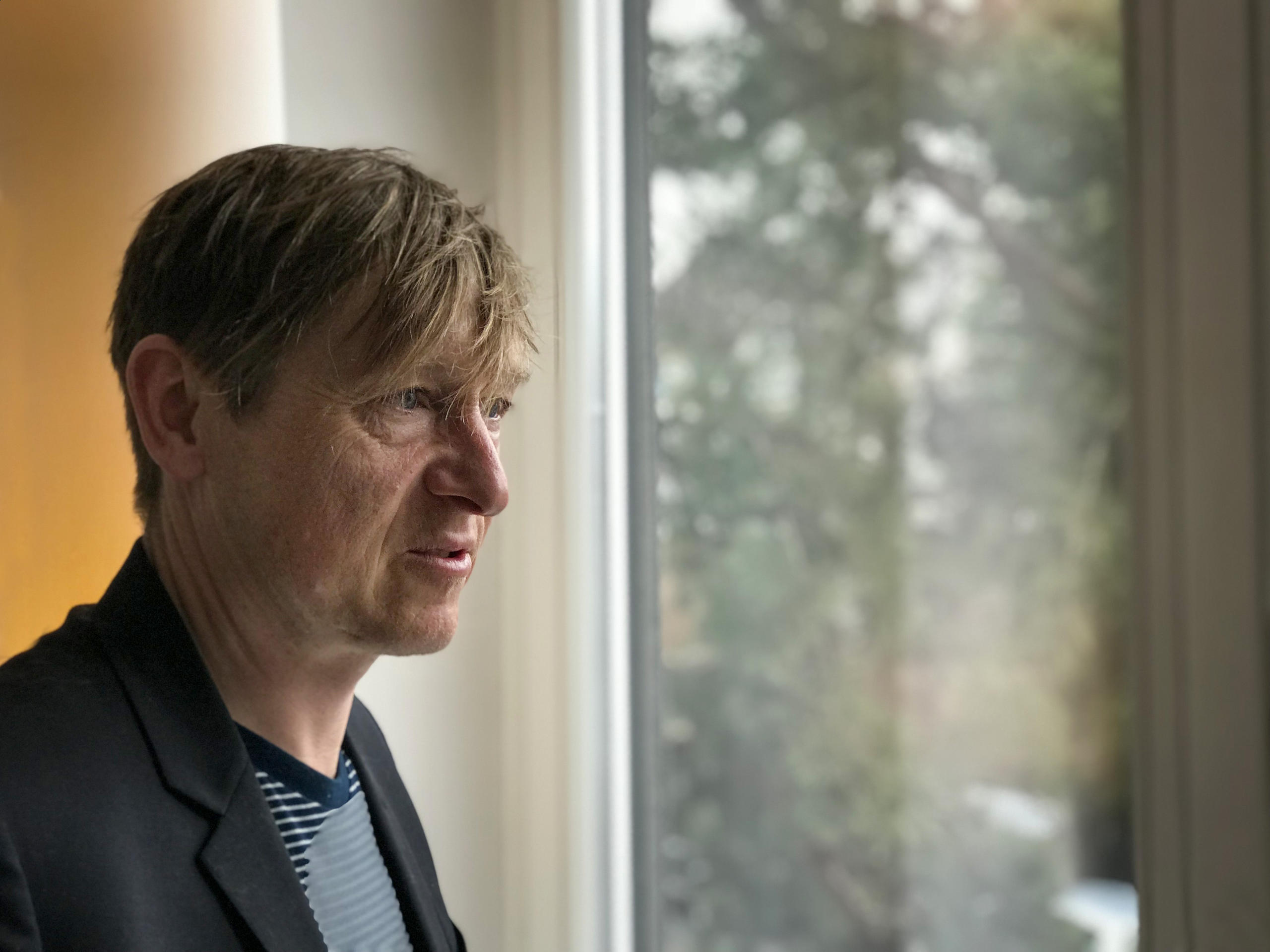
Swiss cities rated most expensive in the world for fun

If it’s cheap recreation and entertainment you want, don’t go to Zurich or Geneva: the two Swiss cities are the dearest in the world for these two categories, according to the Worldwide Cost of Living Survey 2019.
This year’s survey, published on Tuesday by the Economist Intelligence Unit (EIU), reveals that Zurich is the fourth-priciest city overall, just behind joint “winners” Singapore, Paris and Hong Kong. Geneva is tied in fifth with Osaka in Japan.
“In general over the past few years we’ve seen European cities having the highest costs in several categories, for example household and personal care, as well as recreation and entertainment. Zurich and Geneva actually led all the 133 cities we surveyed in those categories,” report author Roxana Slavcheva told swissinfo.ch.
“This perhaps reflects a greater premium that those cities or people in Switzerland in general place on discretionary spending [on non-essential items]. Zurich and Geneva are the only two cities we surveyed in Switzerland, but we see them as representative of the Swiss cost of living.”
According to Slavcheva, recreation and entertainment is “the price of a television, a PC, a subscription to a newspaper or magazine, the price of cinema tickets, theatre tickets, restaurants – the cost of going out.”
While other surveys have highlighted the high price of coffee and Big Macs in Switzerland, some things could be worse for Swiss consumers, as the EIU survey shows:

Although Zurich dropped two places and Geneva gained one, it’s still very close up at the top. “Sometimes the drop happens because there’s movement elsewhere in the index rather than the city has become cheaper,” she said.
Convergence
Slavcheva noted converging costs in traditionally more expensive cities like Paris, Singapore, Zurich, Geneva, Copenhagen and Hong Kong.
“It’s a testament to globalisation and the similarity of tastes and shopping patterns. Even in locations where shopping for groceries may be relatively cheaper, utilities or transportation prices drive up overall cost of living,” she explained.
“More remarkable is the severe fall in the ranking of emerging economy cities – Istanbul, Tashkent, Moscow and St Petersburg – owing to sustained high inflation and currency depreciations.”
The cheapest cities in the survey were Caracas in Venezuela and Damascus in Syria, which were found to be 85% and 75% cheaper than New York respectively.
The Worldwide Cost of Living
The Worldwide Cost of Living is a biannual EIU survey of over 400 individual prices across 160 products and services in 133 cities in 93 countries. These include food, drink, clothing, household supplies and personal care items, rent, transport, utility bills, private schools, domestic help and recreational costs.
EIU researchers survey a range of stores: supermarkets, mid-priced stores and higher-priced speciality outlets. Prices are not recommended retail prices or manufacturers’ costs; they are what the paying customer is charged.
The survey allows for city-to-city comparisons, but for the purpose of this report all cities are compared with a base city of New York, which has an index set at 100. The survey has been carried out for more than 30 years.
(Source EIU)

More
Meet the man trying to make Switzerland less expensive

In compliance with the JTI standards
More: SWI swissinfo.ch certified by the Journalism Trust Initiative




























You can find an overview of ongoing debates with our journalists here . Please join us!
If you want to start a conversation about a topic raised in this article or want to report factual errors, email us at english@swissinfo.ch.